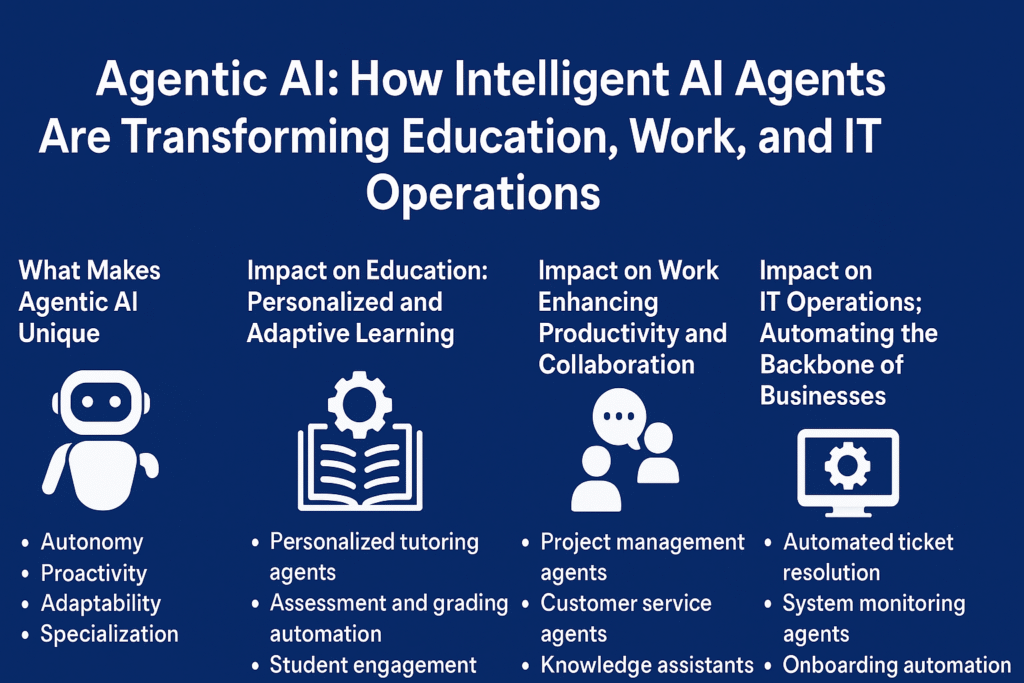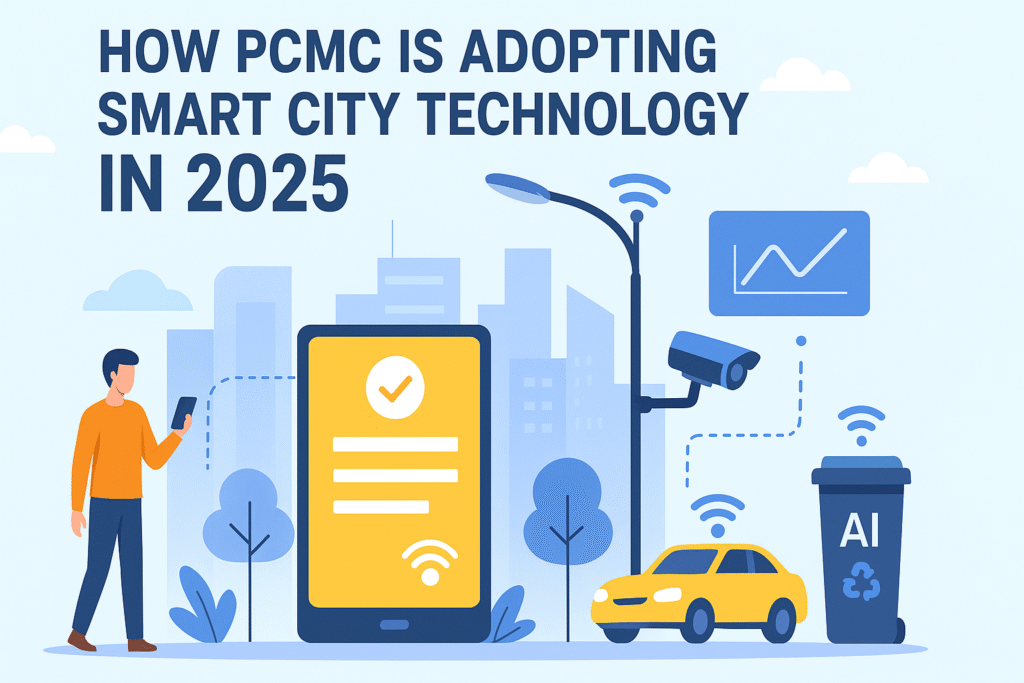Agentic AI—also known as AI agents or autonomous AI systems—is one of the most exciting advancements in the world of artificial intelligence. Unlike traditional AI models that wait for human input and give static responses, agentic AI systems can perceive, reason, act, and learn with autonomy. This makes them capable of completing complex tasks, adapting to changing conditions, and continuously improving performance without constant human supervision.
What Makes Agentic AI Unique
At the heart of agentic AI lies its ability to perform actions through a continuous cycle:
- Perceive – collecting and understanding information from the environment.
- Reason – analyzing data and deciding the best possible action.
- Act – executing the chosen steps or commands.
- Learn – improving its performance by learning from successes and failures.
These four stages allow AI agents to move beyond being just passive assistants and instead function as proactive, intelligent partners in human tasks.
Key qualities of agentic AI include:
- Autonomy – the ability to complete goals with minimal oversight.
- Proactivity – taking initiative instead of waiting for commands.
- Adaptability – adjusting to new data or environments.
- Specialization – performing highly focused roles for specific industries.
- Human-like interaction – communicating naturally using language.
Impact on Education: Personalized and Adaptive Learning
One of the areas where agentic AI shows the most promise is education.
- Personalized tutoring agents can create customized learning plans for each student, adjusting content based on their strengths, weaknesses, and pace of learning.
- Assessment and grading automation allows teachers to save time by delegating repetitive evaluation tasks to intelligent agents.
- Student engagement tools such as virtual teaching assistants or adaptive quizzes can keep learners motivated and provide real-time feedback.
In addition, AI agents can streamline administrative work like scheduling, attendance, and communication, giving teachers more time to focus on building relationships with students. The future of personalized education will likely rely heavily on multi-agent systems working together to deliver learning at scale.
Impact on Work: Enhancing Productivity and Collaboration
In the workplace, agentic AI is already changing how teams operate. Instead of being simple chatbots, modern AI agents are turning into teammates that actively contribute to projects.
Examples include:
- Project management agents that track progress, assign tasks, and resolve conflicts.
- Customer service agents that detect customer emotions, analyze queries, and provide instant solutions.
- Knowledge assistants that summarize reports, generate insights, and prepare presentations automatically.
This results in higher productivity, reduced workload, and faster response times. While many employees are open to working alongside AI teammates, human oversight remains crucial to ensure decisions are ethical, balanced, and transparent.
Impact on IT Operations: Automating the Backbone of Businesses
Another major use case of agentic AI lies in IT operations (ITOps). Managing large-scale IT environments is often time-consuming and repetitive, but intelligent agents can automate much of this workload.
Some powerful applications include:
- Automated ticket resolution – handling IT support queries without human involvement.
- System monitoring agents – detecting network issues, anomalies, or cyber threats before they escalate.
- Onboarding automation – managing employee accounts, access, and permissions automatically.
- Resource optimization – ensuring servers, networks, and cloud resources are used efficiently.
By reducing manual effort, AI agents free up IT professionals to focus on strategic innovation rather than repetitive troubleshooting. This shift is paving the way for concepts like the Agentic Mesh—a scalable system of interconnected AI agents managing enterprise operations seamlessly.
Challenges and Risks of Agentic AI
While the benefits are immense, agentic AI also brings new challenges that must be addressed:
- Security threats – risks like memory poisoning, misuse of tools, or privilege escalation.
- Over-reliance – depending too heavily on automation could reduce human problem-solving skills.
- Transparency – organizations must ensure decisions made by AI agents are explainable and auditable.
- Ethical concerns – privacy, bias, and accountability must be managed carefully in education, work, and IT.
For safe adoption, businesses need strong governance frameworks, continuous monitoring, and human oversight.
The Future of Agentic AI: The Agent Economy
The rise of the agent economy shows that organizations are moving beyond traditional AI toward a future where intelligent agents deliver real-time value. Instead of depending only on consulting services or static AI platforms, companies will increasingly co-create with autonomous agents that can act independently, learn continuously, and collaborate with humans.
As enterprises adopt multi-agent systems and build scalable architectures like the Agentic Mesh, we can expect:
- Smarter and faster workflow automation
- Seamless customer experience management
- Optimized IT resource allocation
- Enhanced decision-making at scale
Ultimately, agentic AI is not just another step in AI evolution—it is the beginning of a paradigm shift where technology becomes a proactive partner in driving innovation, efficiency, and human progress.



